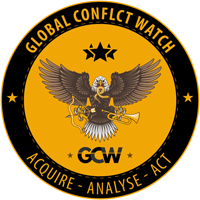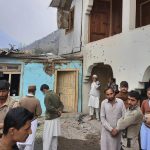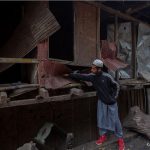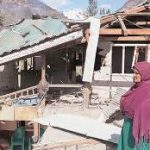ICJ orders Israel to prevent acts of genocide in Gaza but fails to order ceasefire

On the 111th day of Gaza conflict, ICJ has announced its verdict on South Africa’s case against Israel for genocide but at the same time, it stopped short of ordering a complete ceasefire. Yet, this verdict is of historic nature considering the fact that the entire western world including the US and UK were standing behind Israel.
ICJ has accepted the South African application for monitoring, analyzing and investigating the genocidal activities of Israeli Defense forces in Gaza. It also means that ICJ had jurisdiction to rule in the case filed by South Africa accusing Israel of committing genocide in Gaza. ICJ has rejected Israel’s demand of abolishing the South African appeal all together. The decision was almost unanimous by 15 judges in favor of South African application while 2 opposed it. So, this 15-2 decision has put the Israeli government into a tough spot as the top UN court has listed 6 measures for Israel to carry out.
The interim ruling issued by the court ordered six provisional measures, including for Israel to take all measures to prevent genocidal acts, prevent and punish the direct and public incitement to genocide, and take immediate and effective steps to ensure the provision of humanitarian assistance to civilians in Gaza.
The ICJ also ordered Israel to preserve evidence of genocide and to submit a report to the court within a month regarding its compliance with the order.
Editor’s comments
Due to the fact that ICJ failed to implement a much-needed ceasefire, the ICJ decision can be described at best as compromised. This decision will nor bring the conflict to an end, neither it will compel Israel to follow UN conventions of war while facing stiff resistance of Palestinian fighter. There is a great possibility that Israel will not act on any of these measures ordered by ICJ, but yet this order is a step into a right direction as now all the evidence of genocide will be examined as South African appeal has been accepted. This explains why Israeli prime minister, Benjamin Netanyahu, criticized ICJ’s decision and tried to protect Israel’s right to defend itself, which in reality is nothing more than a lame excuse when one take into account the sheer level of destruction and mayhem caused in Gaza by Israeli forces.

Shahzad Masood Roomi is founding member and, editor security and geopolitics at GCW. He is IT graduate and has more than 10 years experience of being a geopolitics and defense affairs analyst. He focuses on IR, geopolitics, strategic studies, maritime security, cybersecurity issues, military aviation, history and geography. His work has published in national and international media outlets.







Comments